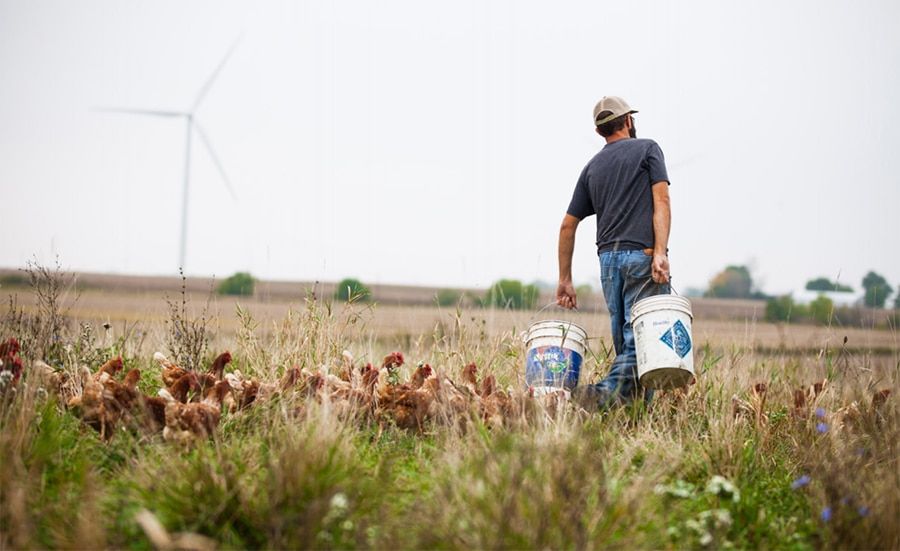CONSERVATION
CONSERVATION

It is vital that agricultural production does not continue to degrade soil and pollute waterways. Despite billions of dollars offered through voluntary cost-sharing programs, farmer adoption of conservation and soil health improving practices remains low. By focusing on organic farming, Iroquois Valley supports a network of farmers to do just that through a variety of approaches.
There is no single factor that consistently leads to increased adoption and programs that incentivize conservation. Soil health practices have to be tailored to the appropriate social, economic, and policy context.
Iroquois Valley’s approach is to remove barriers that inhibit long-term organic land management. We make investments in farmers who use systems-based practices that put living soil at the center of their operations.
IMPACT OF LEASE LENGTH & OTHER INCENTIVES
While land access remains an important issue for farmers who want to grow their operation, the barriers to conservation because of land tenure insecurity can be removed. For example, the difference in cover crop adoption between owners and tenants is reduced when there are long-term (over 5 years) lease agreements. Iroquois Valley works to provide both long-term tenure and to create other incentives that support farmers who are certified or transitioning to organic farming.
IMPACT OF LANDLORD-TENANT RELATIONSHIPS
Sociological studies show differences in decision-making processes between landowners and tenants, revealing that many of the barriers to conservation adoption among tenant farmers are informational, social, or cultural in nature. Tenant farmers often face financial and market constraints beyond the lease structure that may include informational gaps, and power and trust imbalances between landlord and tenant. These can contribute to a sense of land insecurity.
Iroquois Valley supports their farmers by providing flexibility and farmer-friendly land tenure, which forms a basis for the collaborative working relationship needed to advance more conservation on the land. Our relationships with farmers come first, before the transaction of a lease or mortgage payment.
IN SUMMARY
Iroquois Valley works exclusively with organic farmers, which results in a mission-aligned farmer base that is already committed to sustainable agriculture and soil health practices. Furthermore, Iroquois Valley operates in a way that encourages trust and a collaboration with and among its farmers, which helps to eliminate land tenure barriers associated with social dynamics. Iroquois Valley is working to develop and provide additional educational resources focused on soil health practices to help alleviate the lack of information that may prevent adoption of practices.
QUICK FACTS
- The Midwest has 54% of owner- operated land, the lowest among all regions in the U.S.
- 70% of all lease agreements (57% acres of rented land) are reported to be renewed on an annual basis.
- Farmers are 8.3% less likely to plant cover crops on land they rent.
Read more on Soil Health
Iroquois Valley’s farmers recognize that that soil is a living system and they have an important role in improving and keeping it healthy. Healthy soils enable healthy plants, animals, and humans. Through practices such as diverse crop rotations, cover cropping, and integrated livestock Iroquois Valley Farmers work to mimic the processes of the natural environment without synthetic inputs. Organic farming systems are prohibited from using synthetic inputs.
Iroquois Valley takes a systems-based view of soil health management. Our approach recognizes soil is a living system and that managing that system well has environmental as well as socio-economic benefits. Organic farming systems that work to improve soil health have positive economic impacts for both the farms and the communities in which they are embedded.

